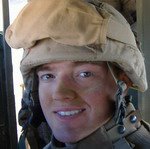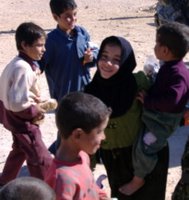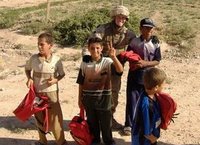I've had communication with my step-son with the Marines in Iraq, and it's refreshing to hear about some of the good things we are doing over there and the progress that is being made in the QuagmireDebacle™ known as Iraq.
I think this stuff needs to be shared.
As a further explanation of the motivation behind this blog, I'll send you to an
article from Mona Charen.
The most telling part of it is here:
"... In his first tour, he [Sgt. Todd Bowers] noticed that members of the press were reluctant to photograph Iraqis laughing, giving the thumbs up sign, or cheering. Yet Bowers saw plenty that would have made fine snapshots. In Baghdad, Al Kut and Al-Nasiriyah, Bowers reported no signs of anti-American feeling at all among Iraqis.
[...] At the same site, the Marines had repaired an old Ferris wheel. The motor was dead, but when two Marines pushed and pulled by hand they could get the thing turning to give rides to the children of the Iraqi employees. They did so for hours on end. A photographer from a large American media company watched impassively. 'Why don't you take a picture of this?' demanded one Marine. The photographer snorted, 'That's not my job.' "







 They are cute kids, aren't they?
They are cute kids, aren't they?



